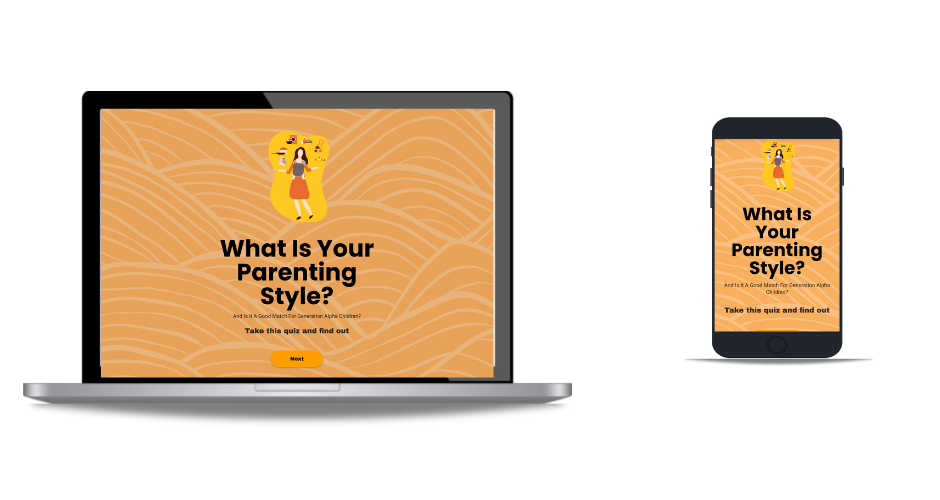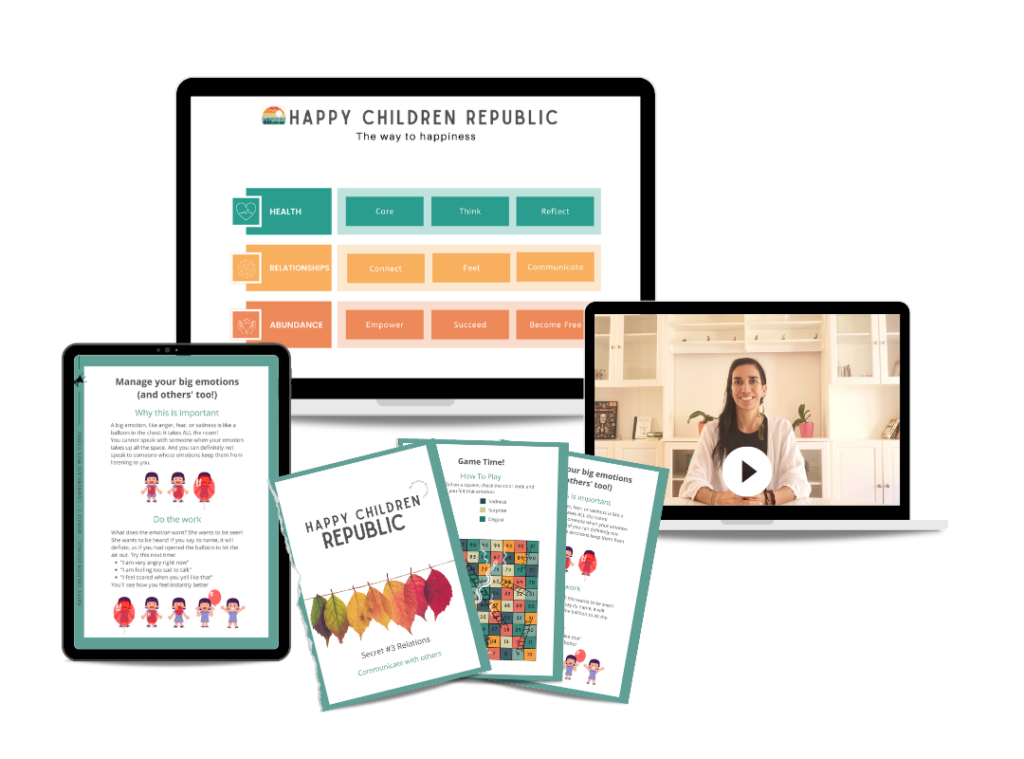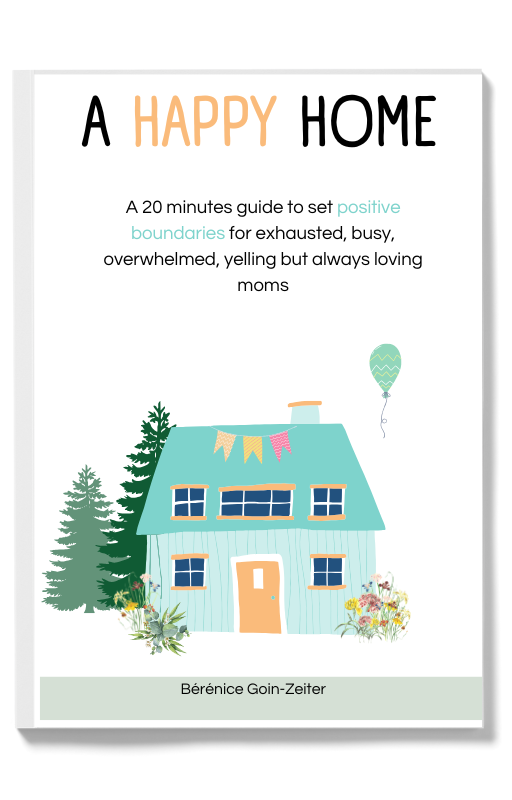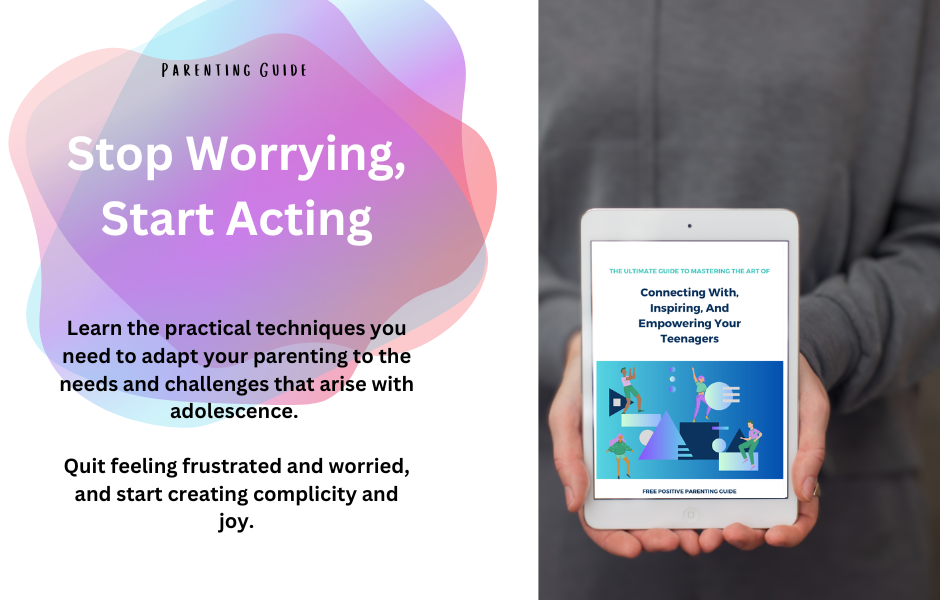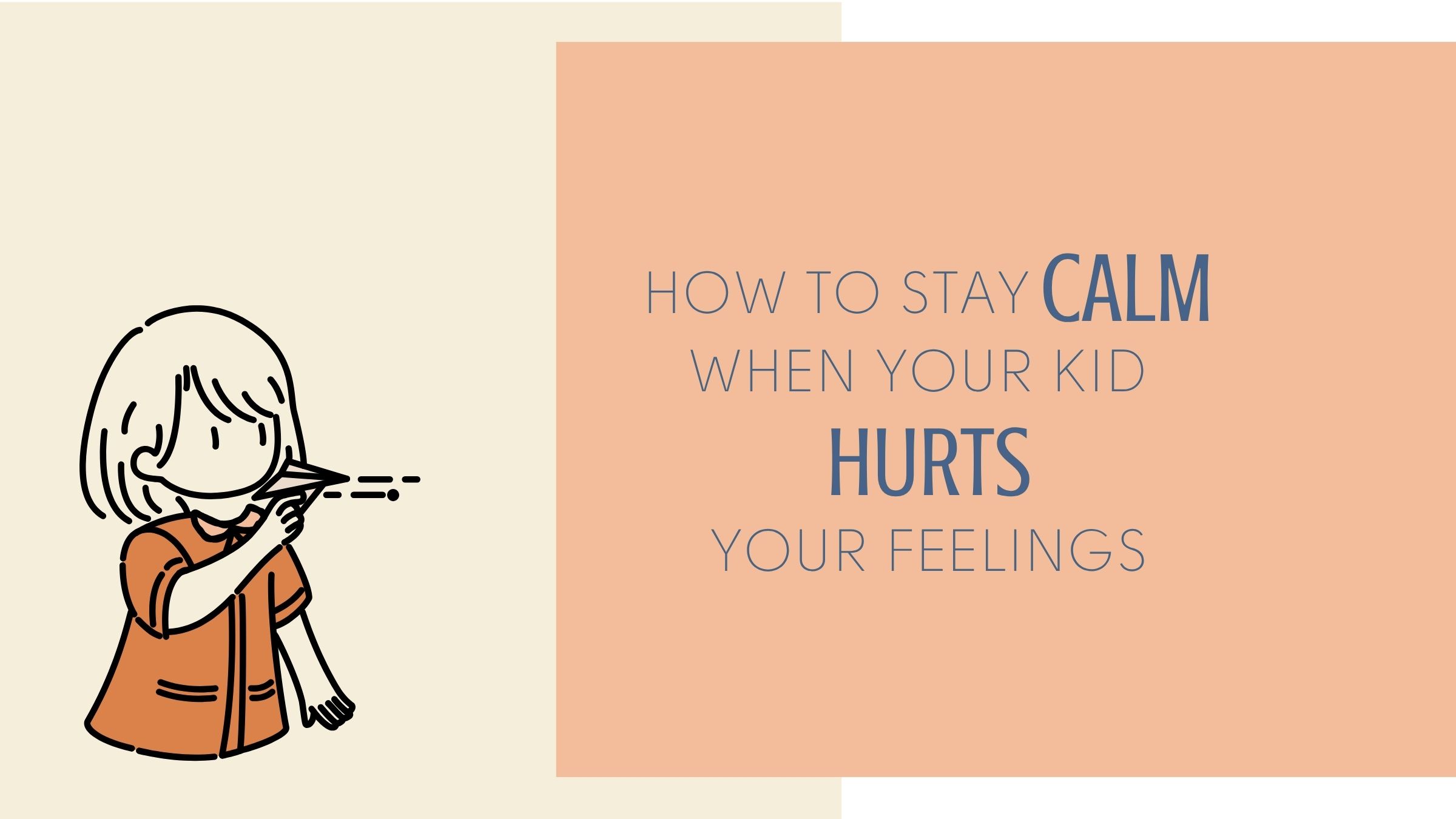
#46 5 Simple Ways to Strengthen Your Bond with Your Children
In this post, discover five easy ways to strengthen your bond with your children. Learn how to create a positive and supportive family environment, no matter how busy your life gets.
As parents, we all want to have a strong and healthy relationship with our children. Building a bond with our children is essential for their emotional and mental well-being, and it has a big impact on their overall happiness.
However, with our busy lives and the constant demands of modern parenting, it can be challenging to find the time and energy to focus on strengthening our bond with our children.
The good news is that building a strong bond with your child doesn’t have to be complicated or time-consuming. By incorporating some simple habits into your daily routine, you can strengthen your bond with your child and create a deeper, more positive relationship.
In this blog post, we will discuss five simple ways to do just that. By implementing these strategies, you can improve your relationship with your child and create a more positive, supportive family environment.
So, whether you’re a new parent or have been raising children for years, these simple habits can help you build a stronger bond with your child and create a happier, healthier family dynamic.
Let’s dive in!
I. Active Listening
One of the most effective ways to build a strong bond with your child is through active listening. Active listening means giving your child your full attention when they’re talking to you and responding in a way that shows you understand and care about what they’re saying. When you practice active listening, you’re showing your child that you value their thoughts and feelings, which helps to build trust.
But how do you practice active listening with your child? Here are a few tips to get you started:
- Give your child your full attention: When your child is talking to you, put down your phone, turn off the TV, and make eye contact. Show them that you’re fully present and interested in what they have to say.
- Listen without interrupting: Let your child finish what they’re saying before you respond. Avoid interrupting or trying to finish their sentences for them.
- Repeat what your child says: This shows your child that you’re listening and helps clarify any misunderstandings. For example, you might say, “So what you’re saying is that you’re feeling frustrated because you didn’t get to play with Anna?”
- Ask open-ended questions: Encourage your child to share more about their thoughts and feelings by asking open-ended questions. For example, instead of asking, “Did you have a good day at school?” try asking, “What was the best thing that happened at school today?”
- Respond with empathy: When your child shares something with you, respond with empathy and understanding. For example, if your child tells you they’re feeling sad, you might say, “I’m sorry you’re feeling sad. Can you tell me more about what’s going on?”

By practicing active listening with your child, you’re showing them that you value their thoughts and feelings, which helps strengthen your relationship and build trust. And, as a bonus, you may also learn more about your child and what’s going on in their life, which can help you better support them. So, take the time to practice active listening with your child and see how it can improve your relationship.
II. Spending Quality Time and Playing Together
Another effective way to strengthen your bond with your child is by spending quality time and playing together. Quality time doesn’t have to be complicated or expensive; it can be as simple as taking a walk together, playing a board game, or cooking dinner as a family. The key is to set aside dedicated time to spend with your child and to focus on enjoying each other’s company.
Here are a few tips for spending quality time and playing together:
- Schedule regular one-on-one time: Set aside dedicated time each week to spend with your child, just the two of you. Use this time to do something you both enjoy, whether it’s playing a game, going for a walk, or simply talking. If you have more than one child, set aside dedicated time for each one of them.
- Get down on their level: When you’re playing with your child, get down on their level and engage with them on their terms. This shows them that you’re interested in what they’re doing and helps build a sense of connection. This isn’t only for toddlers, it works all the way to teenagers on a couch.

- Let your child take the lead: Follow your child’s lead when playing together. Let them choose the game or activity and allow them to guide the play. After all, they spend a lot of time following instructions, and through play, listening to them, you might recognize yourself 😉
- Use play to connect: Play is a powerful tool for building connections with your child. It allows you to let go of your inhibitions and engage in a way that’s fun and playful. A little moment of playing per day can fill a child’s attention bucket. If your child’s not inspired, choose something you know they’ll enjoy, or even better, have them discover something new!
- Be present and engaged: When you’re spending quality time with your child, be present and engaged. Put away distractions such as phones and computers and focus on enjoying the moment together.
By spending quality time and playing together with your child, you’re creating opportunities for connection and bonding. When you set aside dedicated time to focus on your child, you’re showing them that they’re a priority in your life and that you value your relationship with them. So, make time to spend with your child, and enjoy the benefits of a stronger, more positive relationship.
III. Communicating Effectively
Effective communication is a key component of a meaningful relationship between parent and child. When you communicate well with your child, you’re showing them that you’re listening, that you care, and that you’re there to support them.
Here are some tips for communicating effectively with your child:
- Listen actively: When your child is talking to you, give them your full attention. Show them that you’re listening by maintaining eye contact, nodding, and responding appropriately (we can’t repeat that enough, but how often do you keep doing whatever you’re doing, or keep your eyes on your phone, when your child is talking).
- Use positive language: Try to use positive language when communicating with your child. Instead of focusing on what they’re doing wrong, focus on what they’re doing right. This helps to build their self-esteem and reinforces positive behavior.
- Be honest and open: Children are perceptive and can often sense when something is wrong. Be honest and open with your child when they ask questions and try to explain things in a way that they can understand.
- Avoid judgment and criticism: It’s important to avoid being judgmental or critical when communicating with your child. Instead, try to be supportive and understanding.
- Show empathy: When your child is upset, show them empathy and understanding. Let them know that you’re there for them and that you understand how they’re feeling. You can help them by expressing what you see, for example, “You felt and I can see that it hurts, would you like me to help you?”.
Effective communication is a two-way street, so it’s important to encourage your child to communicate with you as well. Ask them how their day was, what they’re feeling, and what’s going on in their lives. By opening up lines of communication, you’re creating opportunities for connection with your child.

“The way we talk to our children becomes their inner voice.” – Peggy O’Mara
By actively listening, using positive language, being honest and open, avoiding judgment and criticism, and showing empathy, you can create a positive and supportive environment for your child to thrive. So, make communication a priority in your relationship with your child, and enjoy the benefits of a deeper, more meaningful bond.
IV. Create Special Memories Together
Creating special memories together can help strengthen the bond between you and your child. And it’s nice to do, creates special memories for you too, gives you opportunities to have fun, and makes for good picture material!
Here are some ideas for making lasting memories with your child:
- Plan special outings: Plan a day trip or weekend getaway, and make your child part of the planning. This can be a great way to create new memories and spend quality time together.
- Do something new: Try a new activity or hobby together, such as painting, cooking, or hiking. This can be a fun way to bond and learn something new together. Also, it’s nice for children to see their parents being new at something.
- Start a tradition: Create a family tradition, such as a weekly game night or a yearly camping trip. This can give your child something to look forward to and help strengthen your family bond. Obviously, you can also start several traditions!
- Volunteer together: Find a cause that you and your child are passionate about and volunteer together. This can be a meaningful way to bond and make a positive impact in your community, as well as a good opportunity to develop empathy.
- Record memories: Take photos, create scrapbooks, or keep a journal of special moments and memories with your child. This can be a fun way to look back on your time together and reflect on your relationship. Children LOVE to watch pictures of themselves, especially when they are printed and in a nice album.
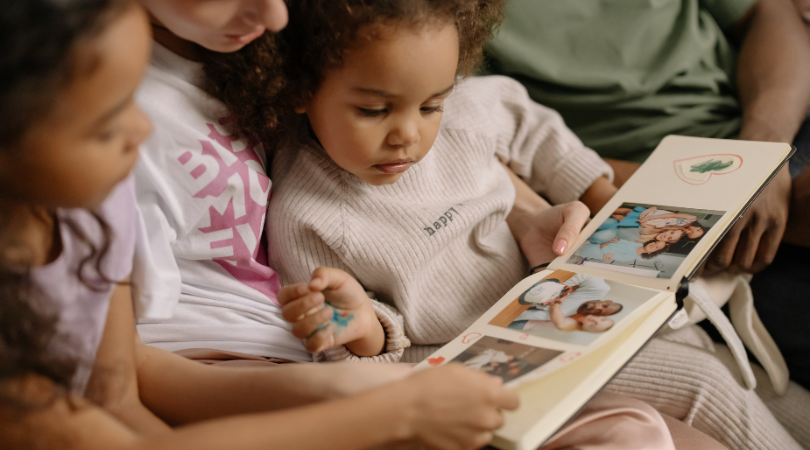
By creating special memories with your child, you’re building a shared history and creating moments that you’ll both cherish for years to come. These experiences can help strengthen your bond and create a positive, loving relationship. By incorporating these ideas in your family, you can build a stronger bond with your child and create lasting memories together
V. Practice Mindful Parenting
Mindful parenting is about being present and fully engaged in the moment with your child. It’s about letting go of distractions and focusing on the present moment.
Here are some tips for practicing mindful parenting:
- Be present: When you’re with your child, be fully present in the moment. Put away your phone, turn off the TV, and focus on your child.
- Listen actively: Practice active listening by giving your child your full attention when they’re speaking. Avoid interrupting or judging, and instead, listen with an open mind and heart.
- Show empathy: Try to understand your child’s point of view and validate their feelings. Show empathy by acknowledging their emotions and letting them know that you’re there for them.
- Practice patience: Mindful parenting requires patience and the ability to remain calm in challenging situations. Take deep breaths and try to stay calm when your child is upset or acting out.
- Use positive discipline: Mindful parenting involves using positive discipline techniques that teach your child important life skills while still being kind and compassionate.
By practicing mindful parenting, you’re showing your child that they’re important and that you care about their feelings. You’re also modeling healthy behaviors and teaching them valuable life skills.
When you incorporate mindful parenting practices into your parenting style, you build a stronger bond with your child and create a more positive, loving relationship, you also raise your overall happiness and satisfaction as those practices are good for parents too!
In conclusion, strengthening the bond with your child is crucial for building a positive, healthy relationship. By incorporating these five simple strategies into your parenting style, you can create a stronger bond with your child and foster a lifelong connection.
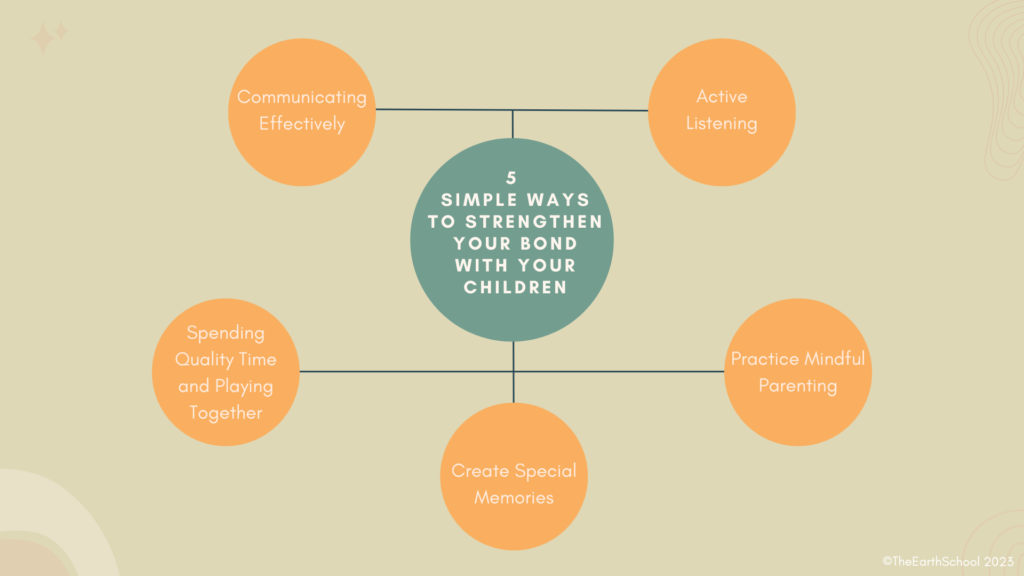
- First, focus on active listening to your child, and make sure you are fully present and engaged when spending time with them.
- Second, prioritize quality time and make sure to schedule one-on-one time with your child regularly.
- Third, express love and appreciation often through words and actions.
- Fourth, create special memories together by planning outings, trying new activities, starting traditions, volunteering together, and recording memories.
- Fifth, practice positive discipline techniques that build trust and respect and be in the moment.
Remember, every child is unique, and there is no one-size-fits-all approach to parenting. It’s important to be flexible and adapt to meet your child’s needs and yours. By following these strategies (and adapting them to your needs of course), you can build a strong foundation for a positive and loving relationship with your child.
“The bond that links your true family is not one of blood, but of respect and joy in each other’s life.” – Richard Bach
So take the time to implement these simple but effective methods and watch your relationship with your child grow day by day. Remember, a strong bond with your child is one of the most valuable gifts you can give them.
Thank you for reading, and I hope you found this inspiring and that you are ready to try a couple straight away! Please feel free to share this post with other parents who may benefit from this information.
Don’t let these five simple ways to strengthen your bond with your children be forgotten!
Join our Instagram community and receive regular reminders and tips to help you stay on track.

And Don’t Forget To Join Our Community To Get Inspiration And Tips Straight in Your Mailbox
I wish you all the best with your kids, always remember that we all do the best we can at a given moment, so don’t judge yourself too harshly. Be confident and listen to your intuition. If what you do comes from a place of love, then you’re on the right path.

Do you want to know if your parenting style is a good match for your children?
Would You Like To Help Your Children Learn Happiness Even If You’re Still Trying To Figure It Out For Yourself?
Join our Transformative Membership and get the best for your children (age 9-12 / 13-16). Nine months for them to learn how to be healthy, happy, kind, respectful, responsible, enjoy learning, be financially successful, and build meaningful relationships. And the best part? YOU don’t have to do anything. That’s right, it’s all about autonomy 🙂
Looking for more positive parenting inspiration?
Don’t Forget To Join Our Community To Get Inspiration And Tips Straight in Your Mailbox
I wish you all the best with your kids. Always remember — we’re all doing the best we can in any given moment, so try not to judge yourself too harshly. Be confident and listen to your intuition. If what you do comes from a place of love, then you’re already on the right path.

If this post resonated with you — if you’ve ever walked ten paces behind your child, wondering if you’re ruining everything — come join us on Instagram.
It’s where I share reminders, reflections, and the odd parenting confession… for mums figuring it out one heart-twinge at a time.

